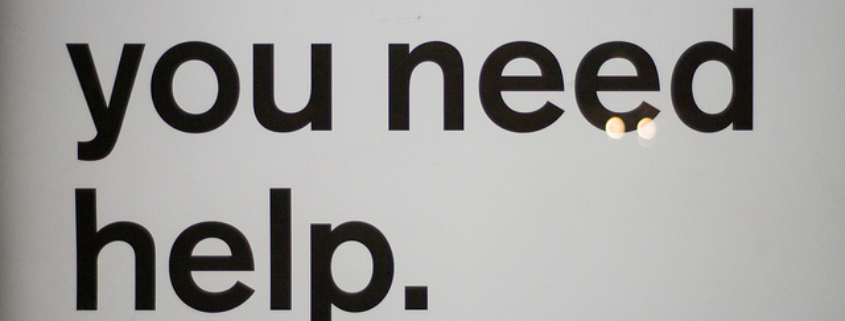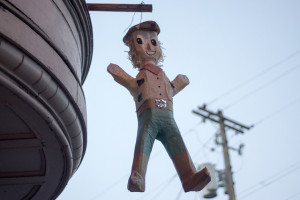What Do You Do?
I sit at a dinner table on the back patio of a French restaurant. It is a warm October night. The waiter has brought wine, a California Zinfandel, and subjected us to a short spiel—the soup of the day is a ginger carrot puree. It seems that everyone, six of us, loosely connected through friends of friends, quietly peruse the menu. I contemplate ways in which to spark a conversation. I can think of nothing. Silence sits at one end of the table, the seat of honor, cackling into his sleeve. He is an unwelcome and uncomfortable guest. Laughter comes rolling out of the kitchen. The man at the other end of the table looks at me and asks, “So Alex, what do you do?” He has a British accent, which, in spite of myself, I associate with pomp and privilege.
I stammer like I hadn’t practiced answering this question before. “I’m a, I’m a writer.” I shake my head. “Well, not exactly. I don’t make money off of writing. I’m an engineer. But I like writing. And I’m in school for it. I’m getting an MFA.”
The man cocks his head. He is trying to understand. “What kind of engineering?”
* * *
This question terrifies me, though it’s innocent enough, posed by a well-meaning stranger at a party or, say, at the dinner table: what do you do? What sorts of tasks do you perform in exchange for money? How might I classify you? How might I understand the ways in which you move through the world without having to pay too much attention or getting to the particulars of what constitutes a human being? Do you work in finance? Are you an administrator? Do you teach yoga? Tend to cats? Cook? What is your role in this grand capitalist experiment?
* * *

Mexican bakery on 24th Street, San Francisco.
What do you do in the quiet moments between tasks? Do you bite your fingernails when you are anxious? Does the sight of a red cardinal in a fig tree makes you yearn for home? Do you eat a gallon of ice cream when afflicted with a lover’s scorn? Do you fill to the brim with guilt when you think about having moved away from your family? Do you stand and watch your naked body in the mirror while burping the alphabet?
* * *
“Electrical engineer,” I say. I take a big gulp of wine. “I work on high-level circuit design.”
“Oh neat,” he says, “But you’re a writer? How does that work? Aren’t those two very different things?”
I nod. “Yes. I guess they are.” This is not what I mean to say. What I mean to say is that they are the same, that the right brain and left brain constitute a false dichotomy, that the same creative powers I conjure to write poems are the ones I use to envision the propagation of ones and zeros through wired abstractions of circuits.
The truth is that the right-brain left-brain dichotomy is indeed false. In a 2013 Time Magazine article, Stephen M. Kosslyn (a neuroscientist) and G. Wayne Miller (an author) explain that at no time does either the left brain or the right brain dominate thinking, that “the halves of the brain don’t work in isolation; rather, they always work together as a system.” The cognitive styles explained by the whole left-right brain idea are myths. But myths are, of course, a way of making sense of experience, of helping to simplify and classify people—in this case into two large buckets. You must be either an analytical thinker or a creative. Except that’s not true. What about creative analysis, like the doctor who meditates before seeking a diagnosis? Or analytical creativity, like the novelist who pins thousands of post-its on her wall to represent characters, carefully drawing strings of connection between them?
I want to say this but I don’t because the words catch in my throat and because this answer is not neat and I’d like to make friends.
“Anyway,” he says, “I’m an investment banker. It’s sort of what you do if you’re from London.”
* * *
Of course it makes sense that this question is posed. It’s simplistic. It approximates how you regard someone who is otherwise a stranger, a shortcut to some semblance of understanding. Oh! My cousin used to work for Siemens. We should be friends. The reality is that one’s job and ones calling are separate, often disparate, aspects of one’s life. This is why I stammer—the sputtering words that never quite make it out of my mouth are, There is more than this. I am more than this. Perhaps it’s because we are expected to be defined by our work that we answer as simplistically as the question begs. Or perhaps it’s because we are not willing to admit that something on which we spend so much time doesn’t come close to fulfilling us. Or maybe the fear of baring ourselves to strangers compels us to don our vocational masks like intricate but predictable costumes at a masquerade ball.
Are writers special somehow? The conceited part of me says yes. Perhaps this is because the vast majority of writers do not depend solely on their writing to survive financially, which places the entire endeavor squarely in the category of hobby—or, more accurately, passion. Few people would choose to be writers unless they really needed to. I think, above all, writers want to be known. Not in the fame sense. Not in book jackets or black & white author photos. We want to be seen; we want the contents of our brains spilled out onto the page, sifted, arranged logically and illogically, carefully and irreverently. To a writer, the what of it doesn’t matter as much as the why. We don’t care what you do, but we damn sure want to know why you do it. (And maybe we’ll steal your essence for our next short story.)
As Sir Terry Pratchett (may he rest in peace) says, “writing is the most fun you can have by yourself.”
… this is mostly accurate.
* * *
What do you do when you think no one sees? Do you panic at baby showers when confronted with your own childlessness? Do you close your eyes once a day and imagine what it would be like to be a seventeenth century Arctic explorer? Do you take psychedelic drugs in order to feel more connected to the human condition?
* * *
This question weighs more where I live and work, in the oft-touted cradle of innovation, Silicon Valley. Many people I meet seem to believe that what they’re doing makes the world better. Here, where life is consumed by the minutiae of program code, apps conceptualization, and marketing strategies. Here, where employees follow money like cartoon characters follow the drifting scent trail of a pie cooling on a windowsill. In the San Francisco Bay Area, where capital flows like water seeking to settle in the reservoir of the nearest “tech incubator,” people truly are defined by what they do for work. How did we get here? Is it the ever-expanding nature of capitalism that demands the American worker put in more and more hours, eschewing his personal life, forgetting to make quiet spaces for self-expression?
Americans work more than ever—for, I might add, the least pay (after accounting for inflation). The language of economics gives us hints as to how we got here. American productivity is up this quarter. Consumer spending is down. There is a shortage of human capital in the labor market. We are machines or, worse, cogs in systems whose machinations are so opaque as to be indecipherable to the most educated of economists, let alone the everyday Shmoe. We are pieces of currency to be traded, pushed around by the invisible, presumably benevolent forces of the free market. We are metrics on a bar graph: one thousand of us comprise one pixel in an image devised by chart pornographers.
Except that we are not. That unit of human capital is learning Mandarin in case she manages to fulfill her lifelong dream of moving to China. That cog lost his mother two years ago and still cries whenever he sees the tea towel she left him in the kitchen. That consumer wonders if her friend Barbara is sleeping with her boyfriend.
Alex Simand is a MFA candidate at Antioch University Los Angeles. He writes fiction, creative nonfiction, and poetry. His work has appeared in such journals as Red Fez, Mudseason Review, Five2One Magazine, Drunk Monkeys, and others. Alex is the current Blog Editor for Lunch Ticket and past Editor of Creative Nonfiction and Diana Woods Memorial Prize. Find him online at www.alexsimand.com or on Twitter: @AlexSimand.







